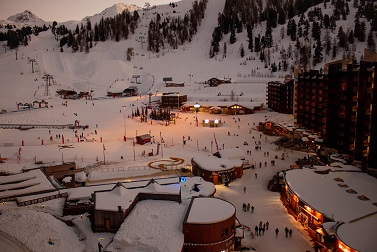NATIONAL REPORT—Heating and electricity are two of the biggest operating expenses of hotels and lodges—eating up to 6 percent of energy costs. Energy consumption is also responsible for 60 percent of a hotel’s carbon emissions. With winter just around the corner, prepping up the accommodation to keep guests warm is an important concern for property owners. At the same time, finding ways to reduce carbon footprint and save on energy are vital to strike a balance between keeping financial books healthy and helping the environment without compromising customer comfort.
Back-up Power in Winter is Critical
 The move towards using renewable sources of energy is picking up and hotels are leading the way. The Wynn Las Vegas’ solar investment can save the hotel as much as 20 percent over a 10-year fixed cost deal according to the company. Unfortunately, backup power is also important if there are emergencies such as unplanned or unannounced power outages.
The move towards using renewable sources of energy is picking up and hotels are leading the way. The Wynn Las Vegas’ solar investment can save the hotel as much as 20 percent over a 10-year fixed cost deal according to the company. Unfortunately, backup power is also important if there are emergencies such as unplanned or unannounced power outages.
Generators are good sources of standby power in case of urgent situations. For example, dual fuel generators are greener options since they allow owners to use either gasoline or propane. The latter is a cleaner source of fuel that augurs well with the environmental strategy of a lodging. Using a dual fuel generator is a suitable solution to keep the hotel running and the guests comfortable and satisfied during power blackouts.
Improve Energy Use Practices
Shifting to renewable sources of energy such as solar panels, wind or geothermal power does not only save a hotel’s electricity bills, it also lures travelers who are keen on reducing their environmental footprint. In addition to green sources of power, there are still several ways that a lodging can improve energy use.
Investing in smart guestroom thermostats is one strategy that lowers energy consumption. Property owners can define average room temperatures and keep those that are unoccupied at a minimum temperature. During the day, unsold rooms must be exposed to passive solar rays to help heat it up keeping the rooms comfortable. Switching off mini refs when the room is not booked or using low settings when occupied can save power and even prolong the life of the appliance.
Above all, implementing a preventative maintenance program for the hotel’s heating, ventilation, and air-conditioning (HVAC) system, lighting, and appliances can help with energy consumption. Cleaning filters, checking windows for drafts and leaks, servicing solar powered boilers, and switching to LED lights are some things that management can do in preparation for winter.
Getting a hotel ready in winter involves not only servicing appliances and the HVAC system, but also includes a backup power system to cope with emergencies. Implementing energy saving measures and training staff to do them properly are equally critical in reducing operational costs and doing something good for the environment.






